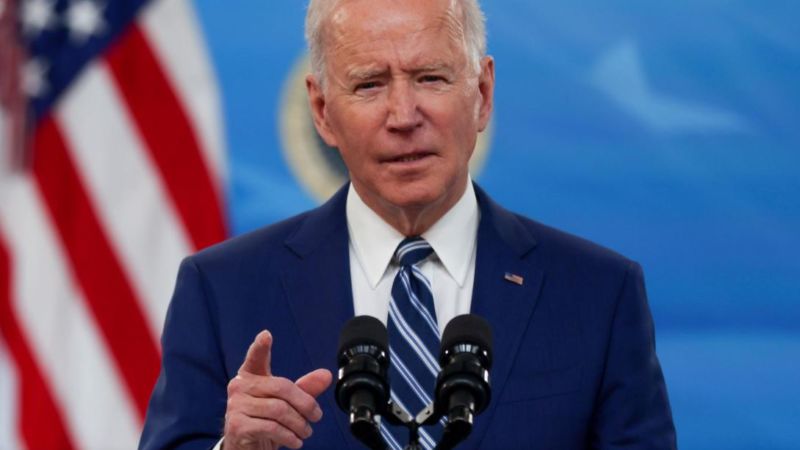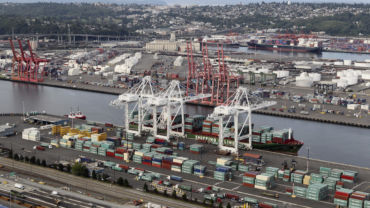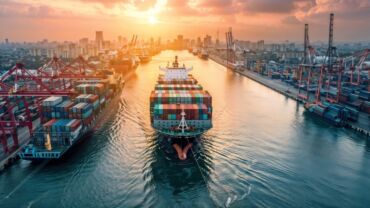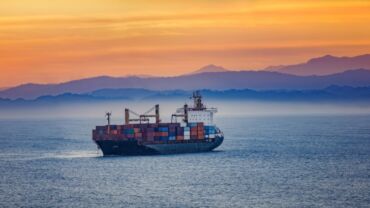It’s been about 70 days since the Biden Administration has taken office. In additional to addressing the nation’s most pressing concerns — the pandemic and the economy that been rock as result of it — this administration has signaled that it is planning to move on other important matters.
Chief among them are the United States’ treaties and trade policies put in place by the previous administration. Indeed, there has been so much speculation on how the Biden Administration will shape and reshape current trade policies. The recently release 2021 President’s Trade Policy provides this summary on their agenda: “The Biden Administration will seek to build consensus on how trade policies may address the climate crisis, bolster sustainable renewable energy supply chains, end unfair trade practices, discourage regulatory arbitrage, and foster innovation and creativity.”
In a recent webinar featuring Reuters’ White House correspondents, the group assessed the work this administration must undertake related to trade, China, and antitrust issues. The previous Trump Administration, like many other past administrations, included the passage of many treaties that the administration felt were in alignment with the country’s position. However, Trump clearly broke with the trade policy of his predecessors and at times, seemed at odds with the rest of the world, impacting allies and non-allies alike.
Some actions were deemed controversial while others were necessary, just as the USMCA trade deal, which is the updated NAFTA treaty. The Biden Administration says it plans to review all of Pres. Trump’s previous trade policies. According to webinar panelist Andrea Shalal, a Senior Correspondent at Reuters, the Trump Administration upended global trade and waged trade wars using tariffs as weapons.
Key issues for global trade management
According to the panel, some of the key trade issues the Biden Administration will need to tackle include:
The E.U.
The ongoing trade battle between the United States and the European Union stemming from Airbus and Boeing disputes left the two regions in a transatlantic tariff war for the last four years. The Biden Administration has agreed to at least temporary lift some of the E.U.’s aircraft subsidies, which signals to the region that the U.S. is interested in working together. Both the U.S. and E.U. want to use trade policy to fight climate change and share an interest in placing tariffs on high-carbon imports.
China
China is the third-largest goods trading partner with the U.S. trading an estimated $558 billion in goods during 2019. In fact, 6% of overall U.S. exports is sent to China. The current administration’s approach of carefully reviewing the tariffs and restrictions set in place by Trump is necessary.
There is much contemplation on whether anything differently will be done with Chinese tech giant Huawei, which is currently listed as security threat and is on the U.S. Commerce Department’s economic ban list. Indeed, all signs point to the ban remaining in place. The Biden Administration appears to be more amendable on ByteDance, a Beijing-based tech company that runs the popular TikTok social media platform. The administration asked the courts to delay moving forward with banning the platform while they review security concerns.
These two prominent issues aside, the trade war with China encompasses other areas that the current administration plans to address and enforce. China’s behavior in the market, which include intellectual property, piracy, and human right issues, will be in focus. Pres. Biden has repeatedly stated his approach to trade with be conducted through the lens of climate protection, human rights, and workers’ rights. There also are plans to pressure the Chinese government on it forced labor actions including its treatment of the Uyghur Muslim community.
Sanctions
The administration also has indicated its willingness to review and decide which sanctions should remain in place and which may see some easing. Trump made history in terms of the number of sanctions he signed during his term — since 2017, he reportedly issued an average three sanctions a day, often somewhat indiscriminately, according to critics. Some of the places where it is thought Biden may ease sanctions include Cuba, Venezuela, and Iran.
For example, Biden’s potential review of Cuba’s designation as a State of Sponsor of Terrorism will most likely suspend Title III of the Helms-Burton Act. Indeed, since the Act’s enactment in 1996, every president — Bush, Clinton, Obama, and Trump has suspended the designation, until Trump began to enforce it in 2019.
The sanctions against Iran will not all go away, but Biden has indicated he wants to return to negotiate again around them. The sanctions against Venezuela includes a ban on diesel swaps (put in place by the Trump Administration last November) which barred non-U.S. companies from sending much needed diesel in exchange for the country’s crude oil. The Biden administration is being asked to lift this ban as the lack of diesel impacts the overall society of Venezuela. Diesel is used for public transportation, including for farmers who need it to move food supplies to markets.
Other notable activities
The incoming U.S. Trade Chief Katherine Tai speaks for the administration in saying that its approach to trade policies will put American workers at the center, ensuring “trade agreements protect and enhance U.S. jobs” adding that Biden’s vision is to “implement a worker-centered trade policy.
Tai herself was a central figure in crafting the USMCA agreement, especially by placing “a great emphasis on enforcement of labor-rights provisions,” says Reuters’ Shalal, adding that these provisions will create a road map for future trade agreements and even help tweak existing ones. That there will be unfettered trade policies is a thing of the past, she says, noting that “the rising tide doesn’t lift everyone out of poverty, as the case of the Uyghurs in China.”
The panel agreed that it is important for countries to utilize tariffs and sanctions when resolution cannot be made through negotiations; however, there should be some level of thoughtfulness in deciding whether to issue sanctions or tariffs. Clearly, as Dr. Catherine L. Mann, Global Chief Economist at Citi, once described: “Trade wars have global implications, and not just for the parties involved” — and that is especially true when the trade wars involve the world’s two largest economies.







